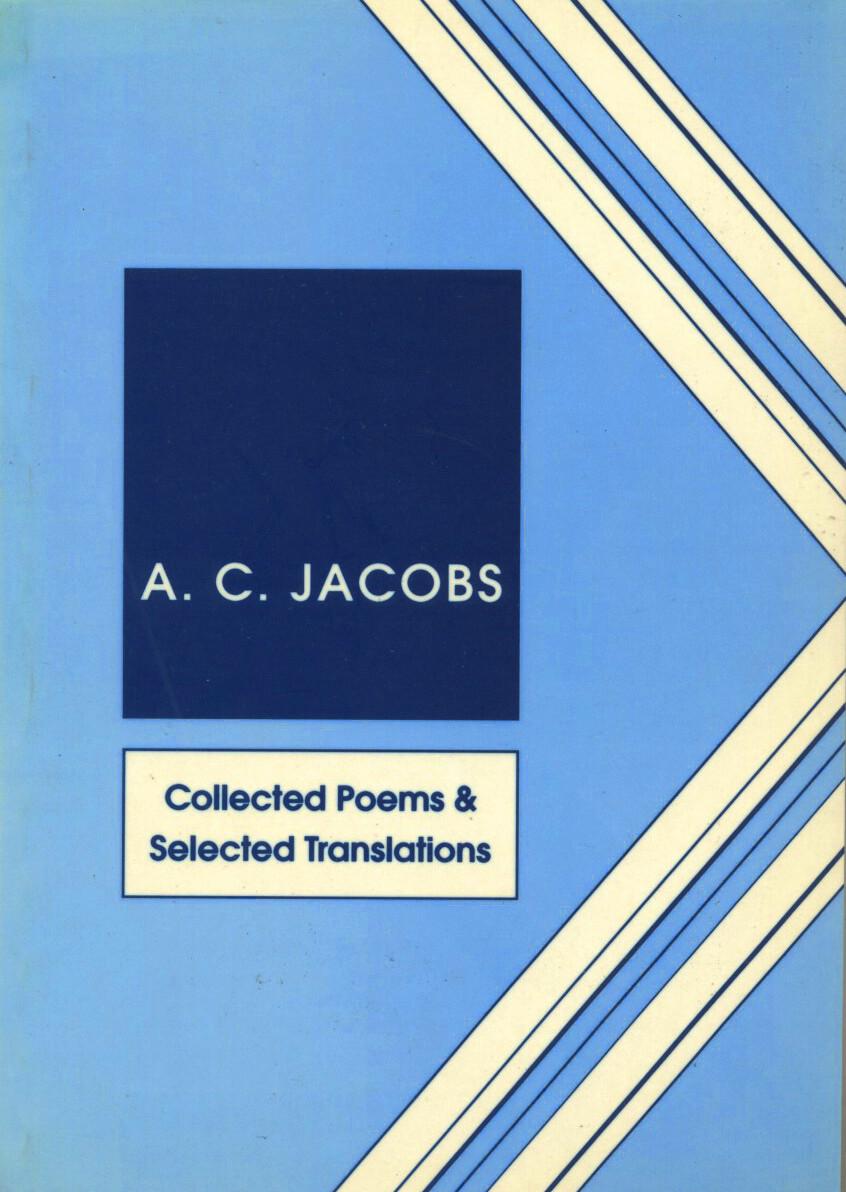Publications

Collected Poems and Selected Translations
writerA. C. Jacobs
editorJohn Rety
translatorA. C. Jacobs
“An astonishing book edited with devotion and discernment.” Dannie Abse
“It is hard to believe that his translations are translations… He has made Vogel’s tone, the delicate nuances, his own.” Robert Friend
Ted Hughes wrote: “Tony Rudolf sent me the volume two days ago and I’ve been reading this. Amazing that we can be wholly unaware of, in the writing of one’s contemporaries. We cover our ears from the din, perhaps, and miss crucial signals. Certainly I’d missed Jacobs whom now I’m getting to know with great pleasure.”
In a letter to Jacobs, the novelist Dan Jacobson refers to “your northern Anglo-Scottish pragmatical self coming down hard on your more emotional Jewish self”. Emanating from the poet’s explicit Judeo-Scottish matrix are many fine English lyrics, poised and vulnerable, deeply felt and highly intelligent, locally grounded – Glasgow, London, Jerusalem, Madrid – and universally accessible.
This volume reprints his previous books and includes many unpublished poems – the fruits of two years’ research among the poets’ papers. The full notes prepared by the editors contain variants and other material of interest.
Jacobs was a distinguished translator of Hebrew poetry. The translation section reprints his books of translations of poems of David Vogel and Avraham Ben-Yitzhak as well as a selection of his versions of Bialik and poets of a later generation, including Amichai, Carmi, Zach and Rabikovitch.
The book contains essays by the editors, John Rety and Anthony Rudolf, and by Philip Hobsbaum and Frederick Grubb. It begins with a foreword by Jon Silkin, who says of Jacobs: “having a minority consciousness, he could site himself nowhere….except in his speech and written language”. The editors believe that readers, whether or not they already know the published work of the poet, will find many additional treasures in the unpublished work. Arthur Jacobs awaited redemption in his very own Vilna, “a bit east of the Gorbals,/ In around the heart”.